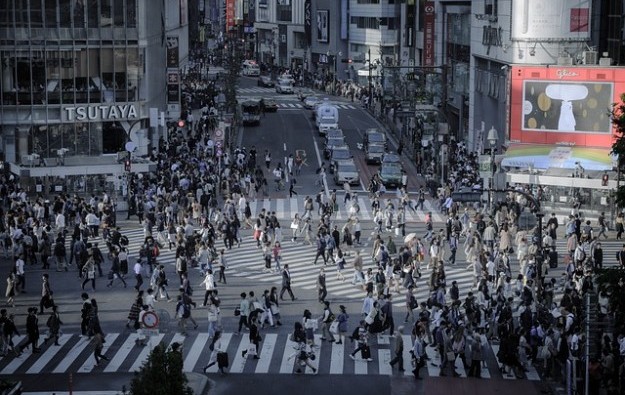Locals curbs would dent Japan casino biz: Morningstar
Sep 22, 2017 Newsdesk Japan, Latest News, Top of the deck

The commercial success of any Japanese casino resorts would in likelihood depend on local demand for gaming, says a Thursday note from investment research firm Morningstar Inc.
“Stringent curbs here [in that area] could further decrease the revenue opportunity,” said analyst Chelsey Tam.
In a June report, the institution had estimated, notwithstanding key variables including the number of initial licences, a “US$25-billion” market opportunity – US$19 billion in gaming and US$6 billion in non-gaming – with “roughly 20 percent return on invested capital for facilities opening in 2024, assuming no major restrictions on local gambling”.
Morningstar said in its latest research note that the regulatory framework for a Japanese casino industry proposed in August by an advisory panel reporting to the Japanese government – and which included possible limits on casino floor area and on frequency of casino visits for locals – “could reduce revenue projections”.
Japanese commentators have made frequent reference to the “Singapore model” with regard to casino regulation. That city-state imposes conditions intended as safeguards against the risk of problem gambling by locals at its two casino resorts. The conditions include an entry levy for Singapore citizens or permanent residents.
In August, Japan’s Office of Integrated Resort (IR) Regime Promotion – known as the IR Promotion Secretariat – suggested setting an “upper limit” to the size of casino floors in Japan, but it did not suggest what that limit should be, according to local media reports. Some media outlets had previously mentioned the possibility of casino floors being restricted to 15,000 square metres (161,459 sq feet).
Morningstar stated in its latest note: “The demographics of Tokyo, Yokohama, and Osaka (possible Japanese urban gaming resort locations) warrant larger gaming floors, in our view. To illustrate, the population within a 41-mile [66 km] radius of Tokyo and Yokohama is 4.7 times larger than Singapore, with both Japanese cities having average household income 8 percent lower than Singapore. The set up is similar in Osaka, with a population 2.5 times larger and average household income 15 percent lower than Singapore.”
Return on capital
Ms Tam added: “Should casino operators want to maintain the same return on investment in an environment with a lower sales opportunity, their capital expenditure would need to be reduced accordingly. This could lead to integrated resorts that appeal less to foreign visitors. We estimate casino operators to have a targeted return on investment north of the mid-teens [of percent per year].”
The analyst further stated: “We anticipate continued debate around these proposals, and we maintain our view that Yokohama and Osaka will receive integrated resort licences and generate sales of US$11.3 billion and US$8.7 billion, respectively, in 2024, which was substantiated in our June 2017 [report].”
In a follow up report in July, Morningstar had indicated U.S.-based casino developers Las Vegas Sands Corp and MGM Resorts International were best placed to win Japanese licences.
In a September 7 presentation in Tokyo, Jim Murren, chairman of MGM Resorts, suggested that 2025 would be the target date for the first launch of any Japanese gaming resort, and that it would be a “Japanese-led” project. He didn’t clarify whether that meant a majority equity investment by Japanese interests.
Even a projected launch date of 2025 might be ambitious, given the likelihood that the IR Implementation Bill is unlikely now to be presented to the Japanese parliament until spring 2018 at the earliest.
It has been widely reported this week that Prime Minister Shinzo Abe – whose Liberal Democratic Party has presided over the matter of casino legalisation as a form of economic stimulus, namely via encouraging more foreign tourists to visit the country – might call a snap election, possibly in late October.
While that had not been officially confirmed as of Friday morning, on Monday Grant Govertsen, an analyst at brokerage Union Gaming Securities Asia Ltd, told GGRAsia such a move would “all but guarantee” the IR Implementation Bill would not be passed this year.
Related articles
-
 Broker cuts Macau 2H mass GGR by 3pct...
Broker cuts Macau 2H mass GGR by 3pct...Jul 26, 2024
-
 MBS Tower 3 rooms revamp now by 2Q...
MBS Tower 3 rooms revamp now by 2Q...Jul 25, 2024
More news
-
 Donaco EBITDA up y-o-y to above US$4mln...
Donaco EBITDA up y-o-y to above US$4mln...Jul 26, 2024
-
 HK listed Palasino upgrades Czech...
HK listed Palasino upgrades Czech...Jul 26, 2024
Latest News
Jul 26, 2024
Border-casino operator Donaco International Ltd has achieved a 164.17-percent year-on-year increase in its latest quarterly group earnings before interest, taxation, depreciation and amortisation...Sign up to our FREE Newsletter
 (Click here for more)
(Click here for more)
Pick of the Day
”We’ve got more traction outside of Macau at the moment. But Macau’s going be a bigger focus for us”
David Punter
Regional representative at Konami Australia
Most Popular
 Sheraton brand to exit Londoner Macao, to be Londoner Grand July 25, 2024
Sheraton brand to exit Londoner Macao, to be Londoner Grand July 25, 2024  Macau regulator probes unlicensed gaming agents July 24, 2024
Macau regulator probes unlicensed gaming agents July 24, 2024  Philippines gives 20k aliens in POGOs 60 days to leave July 25, 2024
Philippines gives 20k aliens in POGOs 60 days to leave July 25, 2024  Philippines-listed DigiPlus says not affected by POGO ban July 24, 2024
Philippines-listed DigiPlus says not affected by POGO ban July 24, 2024  Sands China 2Q EBITDA down q-o-q amid low hold, renovation July 25, 2024
Sands China 2Q EBITDA down q-o-q amid low hold, renovation July 25, 2024






